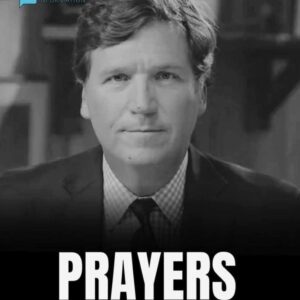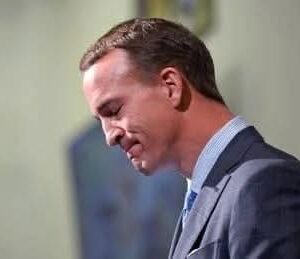Donald Trump’s executive order states children who don’t have one parent who is a permanent resident will not become US citizens
Federal Judge Blocks Trump’s Birthright Citizenship Order, Citing Constitutional Violation
Just hours after being sworn in as the 47th President of the United States, Donald Trump unveiled his plan to end birthright citizenship for children born to undocumented immigrants. However, this controversial executive order has already faced significant legal hurdles, with a federal court issuing an injunction to block its implementation.
The ruling, delivered on January 24 by a District Court Judge in Seattle, labeled the order as “blatantly unconstitutional,” preventing it from taking effect. The decision highlights the contentious nature of Trump’s immigration policies and sets the stage for a legal battle that could shape the future of U.S. citizenship rights.
Trump’s Swift Actions in Office
Following his inauguration on January 20, President Trump wasted no time reversing key policies implemented by his predecessor, Joe Biden. Within days, he had rescinded 78 executive orders and introduced several of his own. Among the most polarizing were directives stating there are “only two genders” and the revocation of the 1965 Equal Employment Opportunity Act.
Trump, 78, also made immigration a cornerstone of his second term agenda. In his inauguration address, he promised to halt “all illegal entry” into the United States and vowed to deport millions of what he termed “criminal aliens.” The order targeting birthright citizenship further underscored his hardline stance on immigration.
Under the current legal framework, birthright citizenship is guaranteed by the 14th Amendment of the U.S. Constitution. This principle ensures that anyone born on U.S. soil automatically becomes a citizen, regardless of their parents’ immigration status. Trump’s executive order sought to change this, ruling that children born in the U.S. without at least one parent who is a legal permanent resident would no longer be granted automatic citizenship.
Legal and Social Implications
The proposed policy quickly drew criticism from legal experts, immigration advocates, and human rights organizations. The Migration Policy Institute and Pennsylvania State University issued a joint statement outlining the long-term consequences of ending birthright citizenship. According to their analysis, such a policy could increase the unauthorized population in the U.S. by 4.7 million people by 2050.
“This change would have far-reaching implications for millions of families and would fundamentally alter the fabric of American society,” the statement read. Critics have also raised concerns about the practical challenges of implementing such a policy and the potential for creating stateless individuals.
Constitutional Challenges
The 14th Amendment, adopted in 1868, serves as the cornerstone of birthright citizenship. Its language is clear: “All persons born or naturalized in the United States, and subject to the jurisdiction thereof, are citizens of the United States and of the state wherein they reside.” Legal scholars widely agree that any attempt to alter this constitutional guarantee would require a constitutional amendment, not an executive order.
During a court hearing on January 22, Justice Department lawyer Brett Shumate defended the policy, but District Court Judge John Coughenour quickly interjected. “Is this order constitutional?” the judge asked pointedly. Before Shumate could respond, Coughenour declared, “This is a blatantly unconstitutional order.”
The judge further criticized the administration’s stance, stating, “We look back in history and say, ‘Where were the judges, where were the lawyers?’ Frankly, I have difficulty finding that a member of the bar can state confidently that this is a constitutional order.”
Government Response and Next Steps
Despite the court’s ruling, the Trump administration has vowed to continue its fight to implement the order. A spokesperson for the Department of Justice stated that they look forward to presenting a “full merits argument to the Court and to the American people.”
Legal experts predict a prolonged battle that could reach the Supreme Court. The administration’s defense will likely focus on interpreting the jurisdiction clause in the 14th Amendment, arguing that it does not extend to children of undocumented immigrants. However, this interpretation has been widely criticized as legally and historically unfounded.
Broader Context of Trump’s Immigration Policies
The birthright citizenship order is part of a broader push by the Trump administration to reshape U.S. immigration laws. In addition to this executive order, Trump has introduced measures to designate Mexican drug cartels as foreign terrorist organizations, deploy additional troops to the southern border, and suspend the U.S. Refugee Admission Program.
Critics argue that these policies reflect an overly aggressive approach to immigration that prioritizes enforcement over humanitarian considerations. “This is not just a policy debate—it’s about the fundamental values that define us as a nation,” said Dr. Elena Rodriguez, an immigration policy expert. “The implications of these policies extend far beyond undocumented immigrants. They affect the legal framework of citizenship itself.”
Public Reaction and Political Divide
The announcement has further polarized the political landscape. Supporters of Trump’s policies praise his determination to address illegal immigration, viewing his executive order as a necessary step to protect American sovereignty and resources. However, opponents see the order as a blatant attack on constitutional rights and an effort to marginalize vulnerable populations.
Protests have already erupted in major cities, with advocacy groups calling for the administration to rescind the order. Meanwhile, Republican lawmakers have largely supported Trump’s actions, framing them as a fulfillment of campaign promises to enforce stricter immigration laws.
Conclusion
Donald Trump’s attempt to end birthright citizenship has ignited a legal and political firestorm, with significant implications for the future of immigration policy in the United States. While the Seattle District Court’s injunction temporarily halts the executive order, the administration’s determination to defend its legality ensures that the debate is far from over.
As the battle moves through the courts, the outcome will not only determine the fate of millions of individuals but also test the limits of presidential authority and the enduring strength of constitutional protections. For now, the 14th Amendment remains a powerful safeguard, standing as a reminder of America’s commitment to equality and inclusion.





